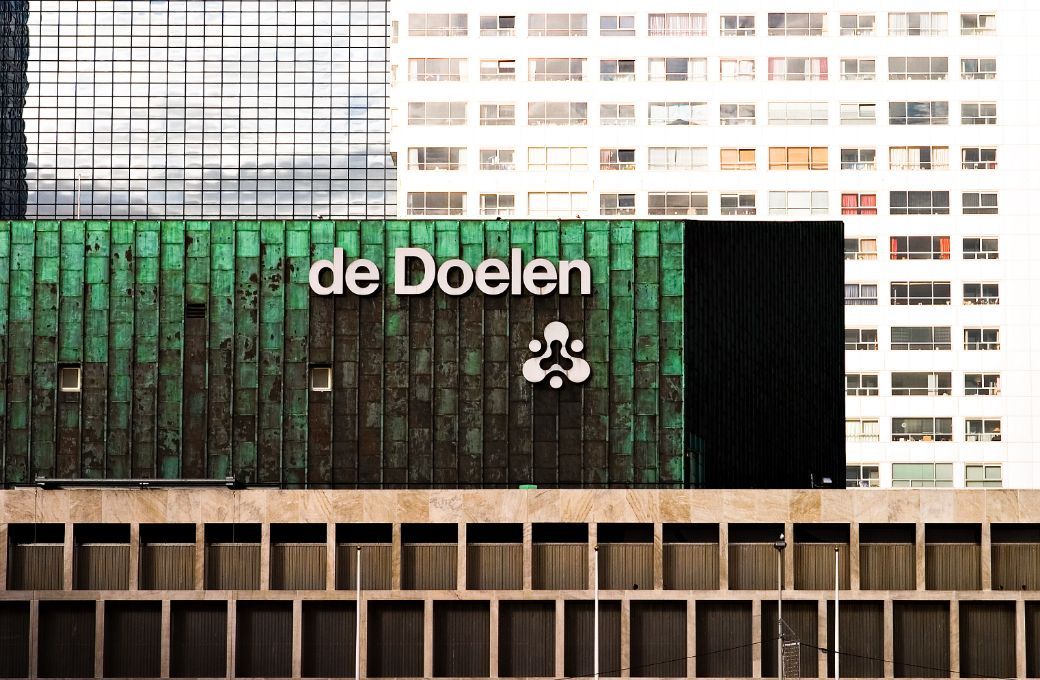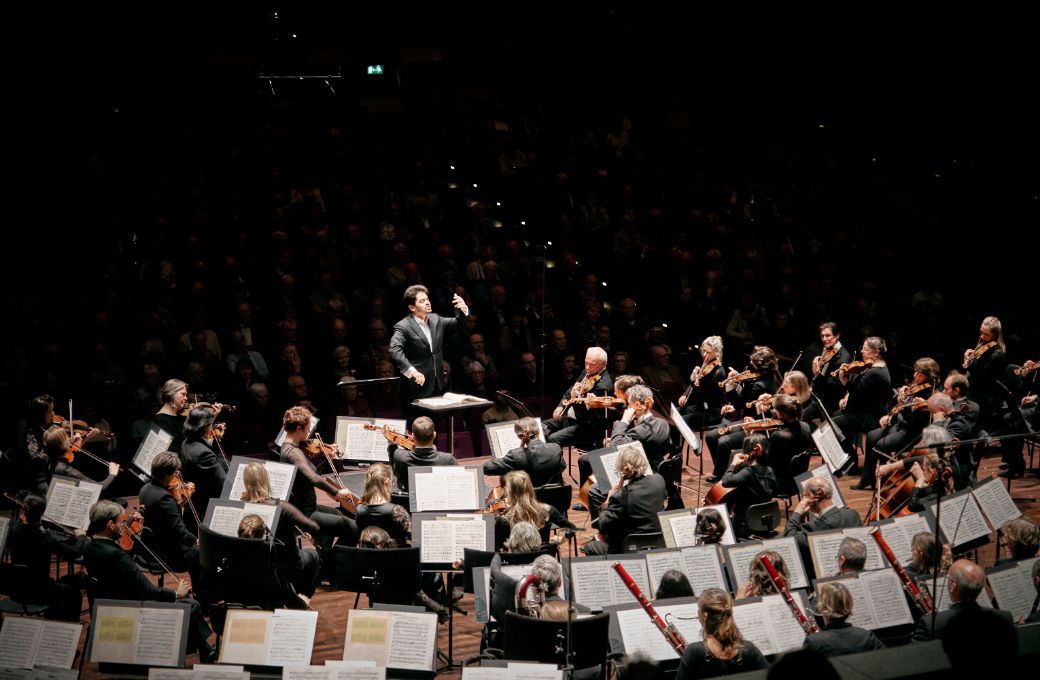The Rotterdam Philharmonic Orchestra makes its home at De Doelen concert hall, a slab of quintessential 60s Rotterdam modernism, the second busiest concert venue in the Netherlands. The orchestra’s 2023–24 season is as varied and cosmopolitan as their home venue – and the city itself.

The opening concert on September 8th is a case in point. Singers Katharine Dain and Diamanda La Berge Dramm join the orchestra to present songs by Stephen Sondheim and Björk. Also on the programme is Debussy’s riotous Fêtes and erotic Prélude d’après-midi d’un faune, and an impressionistic and colourful work for soprano and orchestra from young Dutch composer Rick van Veldhuizen: unde imber et ignes (“whence flood and fires”).
Rotterdam’s newest fiery asset is their chief guest conductor Tarmo Peltokoski. His first concerts with the orchestra will feature Hollywood-infused Germanism – with Bernard Herrmann’s stormy suite from Vertigo, and Korngold’s chocolatey Violin Concerto in D minor. These are alternately paired with John Williams’ Star Wars on Friday and with Wagner and Kodály on Sunday. Simone Lamsma joins as violin soloist.
Peltokoski returns in November with Yuja Wang, to perform Bartók’s bright and prickly Piano Concerto no. 2 against Strauss’ blast of Nietzschean fire Also sprach Zarathustra.
Rotterdam’s youthful Chief Conductor Lahav Shani presents his first concert of 2023–24 with no less a soloist than Martha Argerich. She performs Shostakovich’s Concerto in C minor for Piano, Trumpet and String Orchestra. A work that is more of a double concerto than a true piano concerto, the trumpet soloist will be Alex Cesare Elia. Shostakovich’s 1933 concerto is paired with its near-contemporary, Stravinsky’s Symphony of Psalms – a pairing that does much to illuminate the wide distance between the composers’ music of the time. The gulf is bridged a little by the addition of excerpts from Prokofiev’s Romeo and Juliet.

Lahav Shani returns in December with Janine Jansen, to perform Sibelius’ Violin Concerto and Debussy’s La Mer, as well as Arvo Pärt’s funereal orchestral work Swansong.
Rotterdam’s continuing attraction to youthful, thrusting conductors continues with a pair of concerts in October and November. Finnegan Downie-Dear, Music Director of Shadwell Opera, conducts a British-dominated programme including the fateful, dark surrealism of Thomas Adès’ Exterminating Angel Symphony, paired with Britten’s light-touch Violin Concerto (as well as the warhorse Pictures at an Exhibition).
Then in November Maxim Emelyanychev, also familiar to British audiences as Chief Conductor of the Scottish Chamber Orchestra, arrives to conduct an all-Russian programme of Rachmaninov’s Piano Concerto no. 2 and the fate-and-folksong of Tchaikovsky’s Symphony no. 4. Beatrice Rana joins as piano soloist for the Rachmaninov.
Andrés Orozco-Estrada and Daniel Müller-Schott will join the orchestra for an all-Dvořák programme in November, with Müller-Schott as soloist in the famed Cello Concerto, followed by the Symphony no. 7 in D minor. Since its premiere in 1885, it has become held by many (including Donald Tovey) to be Dvořák’s finest symphony.
In January we have another of Rotterdam’s world premieres, with Thomas Beijer’s Waltz, presented alongside a series of winter-brighteners from Mozart, Strauss II, Léhar and Dvořák. Kristiina Poska joins to conduct these new-year concerts, with soprano soloist Chen Reiss.
